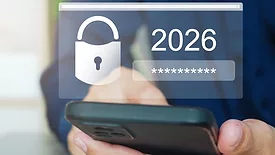Cybersecurity
Cyber Tactics
Sizing Up Top Tech Trends and Priorities for 2026
A look into areas security professionals and digital trust practitioners should be mindful of in the year to come.
December 29, 2025
Product Spotlight: 2025 Year in Review
2025 has brought a wide range of security products, enhancing both physical and cybersecurity systems. Security magazine highlights a few of the products released and/or updated in 2025.
December 22, 2025
Sign-up to receive top management & result-driven techniques in the industry.
Join over 20,000+ industry leaders who receive our premium content.
SIGN UP TODAY!Copyright ©2026. All Rights Reserved BNP Media.
Design, CMS, Hosting & Web Development :: ePublishing















